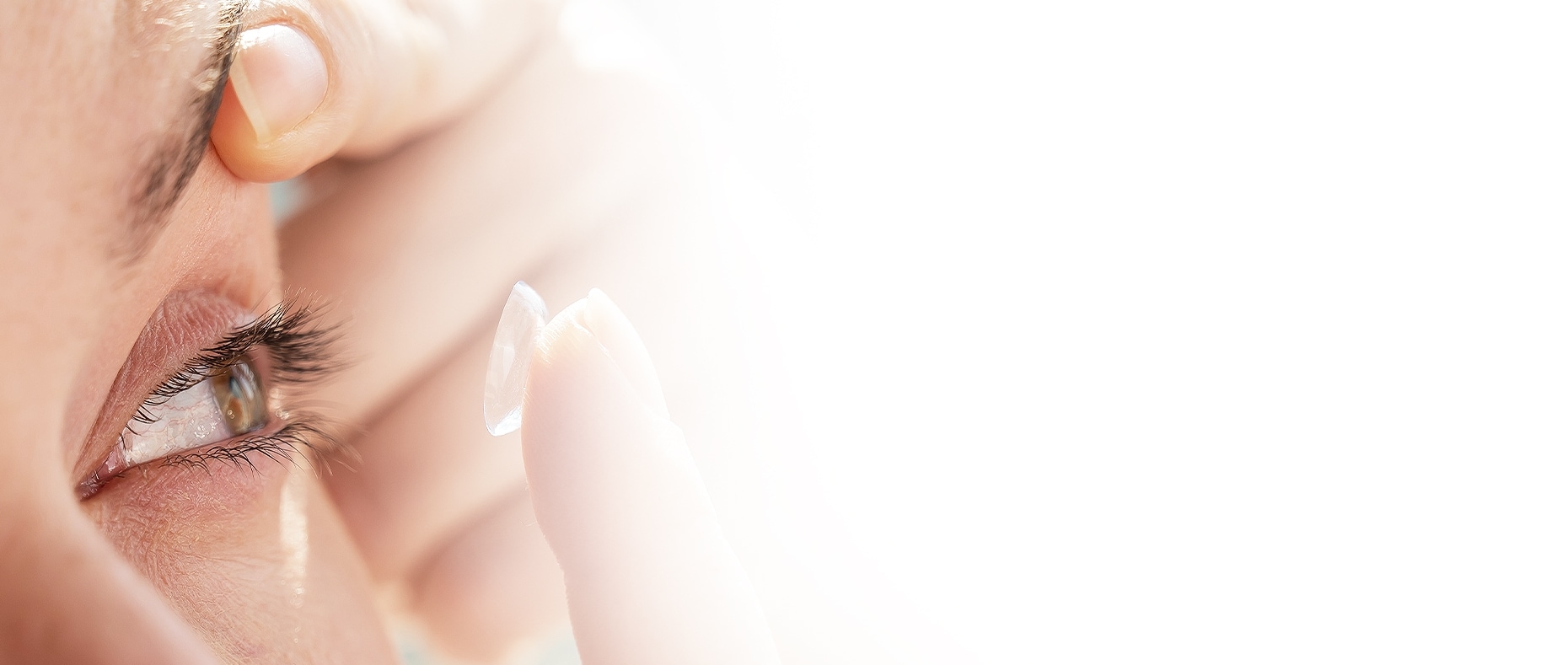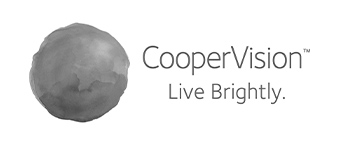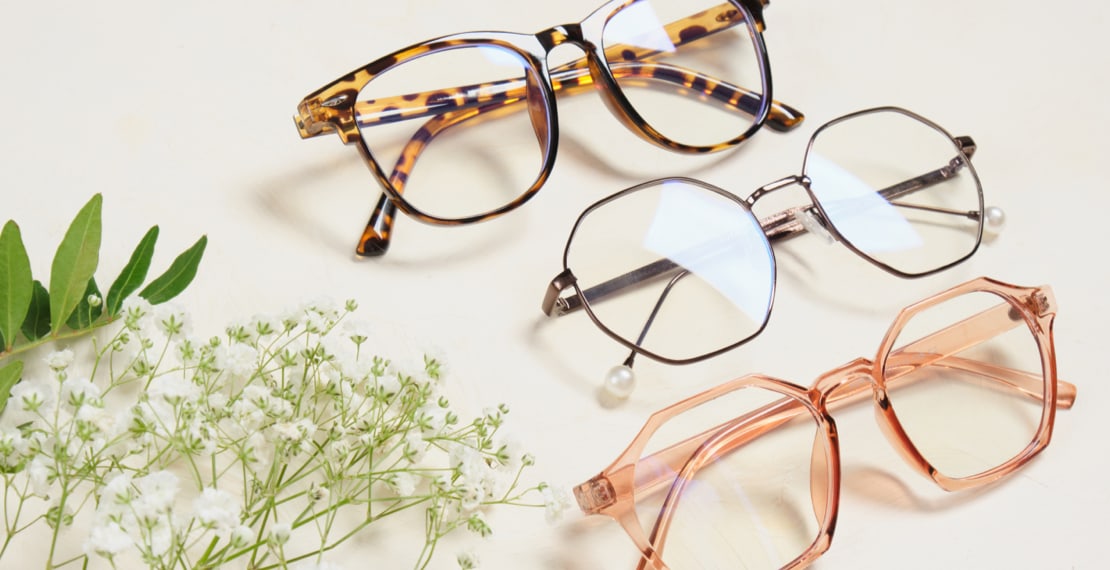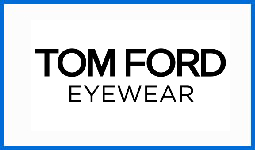What Are The Best Contacts For Dry Eye?
The right type of contact lens—often daily disposables or those made from materials such as silicone hydrogel—can make a significant difference. […]

Contact lenses are an excellent option for individuals that are looking for vision correction without the bulk of eyeglasses. There are many different contact lenses, so it is essential to visit us for a proper fitting to ensure you have the type that will work best for you and your eyes. Ill-fitting contact lenses can be uncomfortable and may even cause damage to your eyes, so always use caution and follow your optometrists’ directions when trying out a new style.
If you’re looking to give contact lenses a try or need at prescription update, visit our team at Calgary Family Eye Doctors for a contact lens exam and fitting in South Calgary. Book today!
Book Appointment
There are several different types of contact lenses that can give you crisp, clear vision without the need for eyeglasses. We will perform a thorough assessment to ensure we recommend a style that works best for you.
Myopia control contact lenses can help reduce the long-term effects of myopia progression and continued eye elongation. We offer MiSight contact lenses as a part of our myopia control options. MiSight lenses have been clinically proven to slow the progression of myopia (nearsightedness) in age-appropriate children.
Whether you are considering contact lenses for the first time or you’re a seasoned wearer looking for a new prescription or brand, we are dedicated to providing a comfortable and supportive experience.
Our team will walk you through the entire process and answer any questions or concerns you may have about your contact lenses.
During our contact lens fitting process, you can expect an initial exam, a fitting, trial lenses and contact lens training, and an assesment and refinement appointment where we will provide your prescription.
Before we fit you with contact lenses, it is crucial to have an up-to-date evaluation of your eye health and vision. Our optometrists will conduct a thorough eye exam to determine your prescription and check for any eye conditions that could affect your ability to wear contact lenses.
We’ll have a detailed conversation with you about your daily activities, work environment, hobbies, and any past experiences with contact lenses. This helps us understand which type of lenses—from daily disposables to extended wear—can best suit your needs.
Fitting lenses is both an art and a science. Our optometrists can measure your eyes to determine the proper lens curvature, diameter, and size to fit your eyes. Precise measurements are essential to supporting your comfort, proper eye movement, and optimal vision.
Once we’ve selected lenses for you, we’ll provide you with trial lenses to wear. If you are new to contact lenses, our contact lens technician will teach you how to safely insert and remove them, as well as how to clean and care for them properly.
For experienced wearers, this is also an excellent opportunity to refresh your knowledge and learn about new care products or techniques.
After you’ve taken your trial lenses home, we will schedule a follow-up appointment. When you return, we will evaluate your experience with the trial lenses, make any necessary adjustments, and confirm that the lenses are meeting your needs for vision and comfort.
Once we are satisfied with the fit and your comfort, we will finalize your contact lens prescription, provide a schedule for when to wear your lenses, and give you instructions for proper lens care.
It’s important to note that the timeline for the fitting process may vary depending on the complexity of the fitting, your individual needs, and your adaptability to contact lenses. Your ideal contact lens prescription may also change over time based on changes to your eye health and vision needs.
There are several reasons to buy contact lenses from an authorized dealer, including:
Overall, buying contact lenses from an authorized dealer can help you receive high-quality, safe, and properly fitted lenses. Authorized dealers can also provide support and service to help you maintain good eye health and vision.

The options are nearly endless when it comes to ACUVUE® brand contact lenses – the #1 contact lens brand in the world. Long-lasting comfort and clear vision can be yours with a contact lens in the ACUVUE® brand family.

Alcon has one mission: to provide innovative products that enhance quality of life by helping people see better. Alcon is and uniquely poised to serve every contact lens wearer by addressing the full life cycle of their needs. Designed in the USA.

Bausch + Lomb is one of the best-known and most respected American healthcare brands globally, offering the widest and finest range of eye health products including contact lenses and lens care products, pharmaceuticals, intraocular lenses, and other eye surgery products.

We create and execute innovation that is unmatched in the contact lens industry. There's much more to our story than that, however. You'll find that what sets us apart is how we approach our business. We collaborate, we listen, and we enjoy what we do. Designed in the USA.
Find us just off Southport Road SW on the west side of Macleod Trail.
There is 2-hour free parking on the south side (first lot) and the west side of the professional building.





The right type of contact lens—often daily disposables or those made from materials such as silicone hydrogel—can make a significant difference. […]
Dry eye often causes a scratchy, gritty, or burning sensation, sometimes accompanied by redness, blurred vision, and even unexpected watering. […]
In 2026, you can expect to see everything from big, sculptural frames and sleek, minimalist metals to updated vintage classics and smart, high-performance styles. […]
Most often, that burning feeling is a sign that your eyes have become too dry or were exposed to irritants while you slept. […]
While some eye drops, like preservative-free artificial tears, can be safe for daily use, others may cause problems if used too often. […]
The key distinction between these two conditions is whether you struggle to see things that are far away or things that are up close. […]
Yes, dry eyes can cause blurry vision, but you can take steps to manage it. […]
While dry eyes don’t directly cause new floaters, the discomfort and inflammation caused by dry eye disease can make you much more aware of the floaters you already have. […]
If you start to notice blurry vision, swelling, and pressure around your eyes, this could be due to a sinus infection. But remember: sinus infections aren’t the only condition that can affect your eyes, so if you’re dealing with vision changes, make sure to talk to your optometrist. […]
Some common contributing factors to red eyes in children include:
Viral conjunctivitis
Bacterial conjunctivitis
Corneal abrasion or foreign body
Blepharitis
Allergic eye disease […]
There are many factors can cause pain when you blink, including conjunctivitis (pink eye), blepharitis, cluster headaches, dry eye disease, debris in the eye, optic neuritis, eye injuries, and styes. […]
Yes, the common cold can directly affect your eyes. In some cases, colds may even lead to viral pink eye. […]
The general guideline is that adults below 65 should have an eye exam every one to two years, while children and older adults may need them more frequently. […]
wearing glasses does not make your eyes worse. […]
The short answer is no. Once a cataract is removed, it cannot return. However, there is a condition called posterior capsule opacification (PCO) or “secondary cataract” that can cause cataract-like symptoms. […]
While there’s no cure to reverse the physical changes that cause myopia, there are effective ways to manage it. […]
Technologies like retinal imaging and non-contact eye pressure testing provide a clearer and more detailed understanding of overall eye health. […]
Read More… from Eye Exam Machines: What Tools Do Optometrists Use?
Here are some of the key features to look for in protective sunglasses: […]
Pink eye and sinusitis are 2 different conditions, but they share a connection. In certain cases, a sinus infection can lead to pink eye; however, most cases occur independently, with no connection to sinus problems. […]
Constant use of our phone screens can lead to digital eye strain, but there are ways to help reduce your risk of the uncomfortable symptoms and further eye damage. Here are 6 tips to prevent eye damage from your phone: […]
Rubbing your eyes can be bad for you because it can increase your risk of infection, damage delicate tissue, and worsen dry eyes and allergies. […]
Contact lenses and glasses (regular and sun) require different prescriptions. But why?
Contact lenses sit directly on the eye requiring adjustments for factors like curvature and oxygen flow
Eyeglasses are positioned a short distance away from the eyes, requiring modifications to correct for the distance between the lens and the eye and the angle of light entering the eye […]
Read More… from How Is a Contact Lens Prescription Different Than Glasses?
Fortunately, a little technique and a calm approach can go a long way toward making the process easier and more effective. […]
Many eye conditions can appear similar to pink eye at first glance, leading to confusion and even incorrect treatment. […]
The first sign of cataracts is often cloudy or blurry vision, which, when noticed early, can help prevent further complications and preserve your eyesight. […]
A diabetic eye exam is a specialized check-up that helps assess your eye health, looking for signs of damage caused by diabetes. […]
Diseases that your eye doctor can detect in an eye exam include:
-Refractive errors
-Cataracts
-Glaucoma
-Diabetic retinopathy
-Macular degeneration and others […]
Read More… from What Diseases Can Be Detected in an Eye Exam?
The length of your eye exam appointment can fluctuate based on certain factors, such as the purpose of the visit, age, health, family history, and any vision-related concerns. Appointments can take anywhere from 30 to 75 minutes, depending on whether they’re standard eye exams or involve additional elements, like specialized screenings for glaucoma. […]
For most people, it takes about 2–3 days to adjust to new glasses, but for some, it can take up to a full week to feel perfectly comfortable. […]
Read More… from How Long Does It Take to Adjust to New Glasses?
Sometimes life gets busy, and you may find yourself dozing off with your contact lenses still in. It happens, and you’re not alone. However, knowing the risks can help you protect your eyes and maintain their health. Short answer? Sleeping with contact lenses can increase your risk of serious eye problems and should be avoided […]
Fluid buildup, eye trauma, medications, and other eye conditions are all potential causes of an increase in eye pressure. Typically, one of the keys to reducing it is treating the root cause. […]
Read More… from What Causes High Eye Pressure & How to Reduce It
Many Canadians wear contacts as an alternative to eyeglasses or laser eye surgery. Contacts can offer comfort and convenience while you’re moving through your daily tasks. You could even forget you’re wearing them—until suddenly something changes. Maybe they fell out, or worse, maybe they got stuck. You may panic, rub your eye, try to blink […]
Read More… from How to Tell if a Contact Lens Is Still in Your Eye
But is dark mode really better for your eyes? The answer isn’t a clear-cut yes or no. Rather, dark mode can reduce glare in low-light settings, but it isn’t universally better for your eyes. Its benefits depend on personal preference and specific conditions. […]
Eye strain usually lasts a few hours and often improves once you give your eyes proper rest. For mild cases, taking short breaks, adjusting screen brightness, and improving workspace ergonomics can help. […]
One simple tip to alleviate dry eyes in winter is to use a humidifier to help restore moisture to the air in your home. […]
The simple answer is that while myopia cannot currently be cured, it can be effectively managed and controlled […]
Here are a few ways dehydration can worsen dry eyes:
The body may produce fewer tears when dehydrated, which can lead to decreased moisture on the eye’s surface.
Dehydration can trigger inflammation in the body, potentially affecting the tear glands and reducing tear production.
A dehydrated body may struggle to flush out irritants or allergens from the eyes, resulting in irritation and dryness. […]
While headaches are not classified as a direct symptom of dry eye syndrome, the discomfort and strain resulting from eye irritation and vision problems can indeed contribute to tension headaches. […]
While meibomian gland dysfunction (MGD) can’t be prevented, there are effective ways to unclog these glands (both at home and with the help of an eye care professional) with a gentle massage. […]
Typically, dry eyes in the morning are caused by an imbalance in your tear film. This can develop due to environmental factors, poor sleep quality, allergies, and even underlying medical conditions. […]
Read More… from Why Am I Waking Up with Dry Eyes? 5 Tips for Relief
Carrots are packed with beta-carotene, which is very good for your eyes! But they’re just one piece of the puzzle. A healthy diet and proper eye care are essential for maintaining good eyesight. So, when your world is blurry, it’s generally better to reach for your glasses than a carrot. […]
We’ve all experienced that uncomfortable sensation of feeling as though something is in our eye. You’re blinking like crazy, sure that there’s a speck stuck in your eye, yet no matter how much you look there’s nothing to be found.
This feeling is often called foreign body sensation and can occur for all sorts of reasons, including dry eyes, corneal scratches, conjunctivitis—or maybe something is actually in your eye. It’s a common irritation that can disrupt your daily activities and cause significant discomfort. Whatever the cause, your optometrist can help you figure it out and get you feeling comfortable again. […]
Read More… from Why Does It Feel Like Something Is in My Eye?
Myopia, or nearsightedness, is a progressive condition that affects your child’s vision, often impacting their ability to learn, socialize, and play. With the help of an experienced optometrist, myopia control can manage this refractive error and help preserve your child’s vision. What Is Myopia? Myopia—commonly referred to as nearsightedness—is caused by a change in the […]
Read More… from Myopia Control Lenses: What Are Your Options?
Expired eye drops may not work as efficiently as they would when they’re fresh. Because they’re no longer effective, they might also lead to an infection. […]
Many parents have questions about the safety and efficacy of eye drops for their little ones. Most eye drops are safe for children with the guidance of a healthcare professional. Different types of eye drops serve different purposes, such as alleviating dryness, treating infections, or irritation and allergies. […]
Vision stands out as one of our most precious senses, playing a crucial role in how we perceive and engage with our surroundings. It enables us to enjoy the beauty of a landscape, recognize the faces of our loved ones, and navigate through the complexities of our environment. Despite its importance, many people find themselves […]
When it comes to eyewear, it’s crucial that your glasses have a perfect fit. If your eyeglasses don’t fit well, then they might not correct your vision effectively. Whether you’re at your computer, enjoying the outdoors, or reading a book, a correctly fitted pair of glasses can be the difference between comfort and frustration. So […]
While all sunglasses are made to shield your eyes from UV rays, some come with lenses designed to block blue light. […]
Blue eyes have less melanin, a pigment that provides some protection against the UV rays from the sun. Melanin helps to absorb light, and with less of it, blue eyes are more susceptible to damage from bright sunlight. […]
An Optical Coherence Tomography (OCT) test may sound like a mouthful, but the process itself is more straightforward. An OCT is a non-invasive test that allows your optometrist to take detailed cross-section pictures of the back of your eye. Including an OCT test during your eye exam allows for early detection and monitoring of various […]
Read More… from What Is an OCT (Optical Coherence Tomography) Test?
Blurry vision is a common issue that can be caused by all sorts of factors. It might be a temporary issue caused by fatigue, dryness, or focusing on a nearby object, such as a computer or phone screen, for too long. Chronic conditions like nearsightedness, farsightedness, astigmatism, or age-related changes in the eyes can also […]
Exposing contact lenses to water can introduce various risks to your eye health, so it’s best to avoid swimming with contact lenses whenever possible. […]
Pink eye and styes are 2 common eye conditions that can cause redness and irritation. A couple of differentiating characteristics are the presence of a bump that could indicate a stye and more localized redness or swelling. […]
Read More… from Pink Eye vs. Stye: How to Tell the Difference?
Common early warning signs of macular degeneration include:
Blurry central vision or distorted lines
Difficulty recognizing familiar faces or reading
Empty or blind spots in the central vision […]
Read More… from What Are the Early Warning Signs of Macular Degeneration?
Severe myopia can increase a child’s risk of sight-threatening conditions developing later in life. For this reason, myopic control methods, such as specialized lenses and contacts, aim to slow myopia progression. […]
The difference between astigmatism, myopia, and hyperopia is the physical shape of your eye and how that shape changes where your vision becomes blurry. […]
Read More… from Astigmatism vs. Myopia vs. Hyperopia: What’s the Difference?
It’s common for patients to experience little struggles with their vision when they’re younger, but age brings many changes to your vision and eye health. There is an increased risk of eye disease, but caring for your sight can help you enjoy comfortable, clear vision. Whether you have glasses or not, many patients want to […]
Basic eye exams for children under the age of 19 and seniors 65 and older are covered by Alberta Health Care. Retinal imaging, however, which is a very important part of assessing ocular health, is not covered by AHC and is recommended at every full exam. Most ocular health exams done for medical reasons like eye infections, removing foreign bodies, diagnosing and managing eye diseases, etc., are covered by AHC for all ages. […]
Read More… from Are Eye Exams Free in Alberta? Understanding Your Vision Coverage
The early warning signs for glaucoma include increased pressure in the eye, gradual loss of peripheral vision, and, on occasion, blurry vision. […]
Read More… from What Are the Early Warning Signs of Glaucoma?
Various lens options exist that cater to different requirements. These include:
– Single-vision lenses
– Bifocal and Trifocal lenses
– Progressive lenses
– Photochromic lenses
– Polarized lenses
– Hi-Index lenses […]
Read More… from Types of Lenses for Glasses: What Are Your Options?
Whether you’re looking for eyeglasses for everyday wear or prescription sunglasses to keep your eyes safe in the sun, quality matters. ZEISS has been making quality prescription lenses for over 160 years. They have lens options for many lifestyles, regardless of your vision needs. We all have different vision needs. For example, some people may […]
When it comes to vision correction, there are several options available, including contact lenses. These small and versatile lenses offer an alternative to traditional eyeglasses, allowing you to have clear vision without compromising your comfort or style. But how exactly do contact lenses work? Contact lenses work by correcting your natural refractive error. They bend […]
When it comes to maintaining clear vision, there’s a certain term often thrown around during eye exams that may not be well understood—20/20 vision. It’s used by optometrists to describe optimal vision or visual acuity, but what does this term actually mean? 20/20 vision is the term used to describe normal visual acuity (the clarity […]
As our lives become increasingly dominated by screens, more and more people are seeking ways to mitigate the negative effects of extended screen time. One popular solution is blue light glasses, which are designed to filter out the blue light emitted by digital devices and may help reduce eye strain, headaches, and other symptoms commonly […]
Glaucoma can be a risk for your vision, especially with time. This eye disease can lead to severe vision loss if untreated, but many people don’t know its dangers. Several factors can make you more likely to develop glaucoma. You may be more at risk of glaucoma if your immediate family has a history of […]
Children rely on their eyesight to learn, explore, develop, and grow. A child’s eyes change rapidly as they age, which is why experts recommend regular eye exams for growing kids. But what happens during a kid’s eye exam? Simply put, an eye professional will go through a series of tests to ensure your child’s eyes […]
Contact lenses can be a great alternative to glasses. They can be more convenient when playing sports, help you look polished, and don’t fog up like glasses in cold weather. Switching between glasses and contact lenses helps keep your vision crisp and clear in any environment. But contact lens care can be high maintenance compared […]
Think back, and you may recall when children and adults spent more time outdoors. But with the increase in digital device usage, more people are spending their time in front of a screen, resulting in digital eye strain. In 2020, 61% of Canadians played video games, with the average age being 34. And with the […]
Everyone deserves quality eye care, and regular eye exams play a critical role in preserving eye health and vision. For those people with vision correction needs, glasses and contact lenses provide staple choices. Eyeglasses for refractive errors include a lens prescription. With significant refractive errors, one may need a stronger prescription and a thicker lens. […]
Read More… from Do Contact Lenses Get Thicker with Prescription?
Early detection of vision issues is key in protecting the health of your eyes. Comprehensive eye exams, like digital retinal imaging, are quick, painless, and effective ways for eye doctors to view inside the eyes and record any changes that might point to vision or other health issues. Early eye disease detection makes it possible […]
Glaucoma is one of the leading causes of blindness for people over the age of 60, but it can occur at any age. Sometimes, glaucoma can develop without any symptoms or warning signs, and can only be detected during an eye exam. Eye exams are crucial to keep your eye health and vision on the […]
Read More… from How Often Should Glaucoma Patients Be Checked?
Vision Health for Infants Infants experience a lot of growth in their early years. They’re learning how to use their bodies, including their eyes. Visual skills are necessary for many everyday things your baby is learning. Visual skills include tracking object movement, recognizing faces, and hand-eye coordination. Every child develops differently. But vision development milestones […]
Dealing with diabetes can be difficult and might leave you feeling overwhelmed. Early diagnosis and proper treatment can give you the power to manage your diabetes with confidence. There are many ways to diagnose diabetes early, including through regular eye exams. Diabetes is the leading cause of blindness in Canada, so regular eye exams and […]
Read More… from Can an Optometrist Tell if You Have Diabetes?
Many people choose contact lenses over glasses when they need vision correction. These lenses can help you see clearly without needing frames, but they require more maintenance. Because contact lenses rest on your eyes, do they have an expiration date? Continue reading to learn more about contact lenses, including if they can expire and how […]
Eye floaters are a normal part of ageing, but can they be dangerous? Understanding why eye floaters occur can help you know whether or not you should visit your optometrist for an emergency. Continue reading to learn more about eye floaters, including what they are, how they develop, and if they’re dangerous. What Are Eye […]
Healthy Vision for Our Little Ones We all want our children to be happy and successful in their endeavours, and healthy vision can play a massive part in a child’s overall wellness. Our kids grow up fast, and their eyes develop right alongside them. How can you tell if they’re hitting the correct visual milestones? […]
Contact lenses can be a great alternative to glasses. For many people, contact lenses are easy to wear, more comfortable, and more aesthetically pleasing than traditional eyeglasses. Even though many people prefer contacts over glasses, they do require more maintenance and care. Contact lenses can be a lot more work than glasses and need to […]
Read More… from What Happens If I Wear My Contacts Too Long?
Glaucoma is one of the leading causes of blindness in Canada, and you may not even notice anything is wrong until vision loss occurs. If you have undiagnosed glaucoma, how do you identify this disease before your vision is affected? A series of tests used during a comprehensive eye exam can detect any eye problems. […]
Are you worried about how screen time is affecting your child’s eye health? The truth is, most children are getting too much screen time, and it can lead to poor eye development and puts your child at risk for developing certain eye conditions, such as digital eye strain. If you’re concerned about the effects of […]
Read More… from How Too Much Screen Time Impacts Kid’s Eye Health
Our promise to you. Wow! What a whirlwind these last few months have been; we’ve all seen some challenges during these unprecedented times. On April 30th our government made the announcement that allied health services can return to offering non-urgent routine care. We are beyond happy to announce that we are open once again, doing […]
At Calgary Family Eye Doctors we are hoping you and your family are staying safe during these unprecedented times. If you are on our email list you will already know that we are seeing eye emergencies only, at the moment. We are currently not providing routine eye exams. We are dispensing glasses and contact lenses […]
Have you ever thought about getting elective eye surgery to correct your vision? Many people decide to have corrective surgery to eliminate the need for glasses or contacts. The most well-known type of surgery is laser eye surgery. There are also non-laser surgery options, such as implantable lenses (or ICLs). Types of corrective laser surgery: […]
Contact lenses are a popular option for vision correction; many people prefer them to glasses. Contact lenses do have several benefits, such as being able to wear non-prescription sunglasses and having better peripheral vision. However, contact lenses are a medical device that sit on your eye (they sit on a layer of tear fluid on […]
Read More… from 10 things to remember when wearing contact lenses
Getting reading glasses sometimes feels like a rite of passage – or, at least, a rite of aging. It’s common to hear of people with perfect vision having to need glasses when they’re in their 50s or 60s. Why does this happen? Do our eyes suddenly worsen after a certain age? Well…sort of. The culprit […]
May is Vision Health Month! Throughout the month, eye care professionals in Canada and around the world will work to raise awareness about eye health. Good eye health is important for everyone, regardless of age. In fact, we recommend that children go for their first comprehensive eye health exam at six months of age, and […]
We’re very excited to announce the launch of Eye See You, our community outreach and education program for children. It’s designed to complement the province-wide Eye See Eye Learn program, which provides free prescription glasses to children in kindergarten. Since Calgary Family Eye Doctors is a participating clinic in the Eye See Eye Learn program, […]
Approximately 30% of Canadians are myopic, and that number continues to rise. While myopia affects people of all ages, there has been a recent rise in the number of children who are myopic. Currently, about 6% of children between the ages of 6 and 8 are myopic; by the time kids reach the ages of […]
The world is full of colour. Life is permeated by vivid and brilliant colours, and colour can have an impact on what we see and how we perceive the world. But what if you see colours in a different way than most people? What is colour blindness? Colour blindness is the inability to distinguish between […]
Sunglasses are usually seen as a summer accessory, along with hats and sunscreen. But, just like hats and sunscreen, it’s important to wear sunglasses in the winter. Even though the weather is colder (and snowier) and the days are shorter, UV rays are still hitting us. Here are three reasons why it’s important to wear […]
Read More… from Why it’s important to wear sunglasses in the winter
New year, new glasses! (Right?) But before you head out to buy your new glasses this year (hopefully at our clinic, of course!), let’s take a look at some of the trends for prescription eyewear for 2019. Shapes A lot of people have glasses that are more neutral in shape (that is, shapes that are […]
Glaucoma is one of the leading causes of blindness; in Canada alone, there are over 400,000 people who suffer from glaucoma. It’s called the “silent thief of sight” because it usually occurs with no symptoms. What is glaucoma? Glaucoma is a group of eye diseases that affect the optic nerve. Glaucoma occurs when there is […]
If you have Type 1 or Type 2 diabetes, you’ve likely been told that you need to get your eyes checked yearly. Have you wondered why your family doctor is telling you that you need to see your optometrist to help monitor your diabetes? The short answer is that in an eye exam, your optometrist […]
A note: if this post looks familiar to you and you’re a newsletter subscriber, that’s because this post was initially released as a newsletter to our patients. If you’d like to sign up for our newsletter, please sign up here. Do you suffer from dry eyes? Have you tried multiple drops and found only temporary […]
Here is a brief overview of Alberta Health’s vision coverage. Children Alberta Health covers one complete eye exam for children and teens under the age of 19 every benefit year (a benefit year is July 1 – June 30). They will also cover one partial exam and one diagnostic procedure. Please note that Alberta Health […]
Read More… from Vision Coverage: What is Covered by Alberta Health?
Our eyes, and therefore our vision, can change over time. But if you notice your vision becoming rapidly blurrier, it’s time to visit your eye doctor for an eye exam and up-to-date prescription. There are a number of reasons your prescription might change rapidly, including: Diabetes This is probably the most common cause of temporary […]
Read More… from 5 Ways Your Glasses Prescription Can Change Rapidly
While children may have symptoms that can indicate a vision or eye health problem, it’s also possible for vision issues to be asymptomatic. In these cases, the only way to detect them would be through a comprehensive eye health exam. […]
October is children’s vision month, so throughout the month, we will be working to bring awareness to children’s eye health. This month, we wanted to talk about the importance of children’s eye exams, and why focusing on their eye health is just as important as focusing on our own. […]
Read More… from Children and Eye Health: The Importance of Regular Eye Exams
It’s no secret that people are spending more and more time on digital devices. After all, we’re very much a plugged-in society. But how does all this screen time affect our eye health? Does it have an effect at all? […]
So…what exactly is blue light? Essentially, it is a high energy light that is visible to the human eye. All light that we see falls along the visible light spectrum (remember the acronym ROYGBV?). […]
A few years ago, I was lucky enough to volunteer with VOSH International to perform ocular examinations for the underprivileged in Belize. It was one of the most incredible and memorable trips I have ever taken. Belize is a beyond-beautiful country with such friendly and kind people. The first few days were spent on the […]
Volunteering with international eye care missions has changed my life. My inaugural trip was serving as a translator for an eye care team in Guatemala. […]